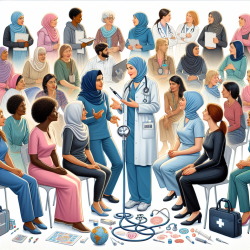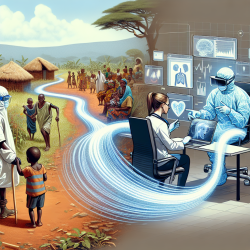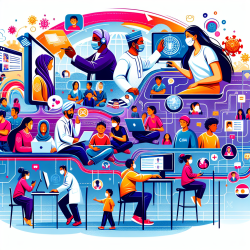The role of Community Health Agents (CHAs) has been pivotal in advancing primary healthcare delivery and promoting health awareness in low-resource settings. However, beyond the health outcomes they facilitate, CHAs also experience profound personal transformations. This blog explores insights from the research article "Community Health Agents Advancing Women’s Empowerment: A Qualitative Data Analysis," which highlights how CHA work impacts women's lives and self-perceptions.
The Power of Achievements
The study identified four major themes related to women's empowerment: achievements, agency, meaningfulness, and resources. Achievements were the most frequently cited theme, encompassing changes in family behavior, self-worth, education, health and nutrition, and rights and politics.
- Family Behavior: CHAs reported shifts in family dynamics, with increased support from spouses and a greater emphasis on family values.
- Self-Worth: Many women experienced a boost in self-esteem and recognition of their value within their communities.
- Education: Through workshops and exchanges with peers, CHAs gained valuable knowledge that they applied in their personal lives and shared with others.
- Health & Nutrition: CHAs learned about healthy practices and implemented changes that improved their families' well-being.
- Rights & Politics: Empowered by their roles, CHAs advocated for equitable treatment and recognized their rights.
Nurturing Agency
The theme of agency included subthemes such as voice, confidence, decision-making, and participation. These elements reflect the growing empowerment CHAs experienced as they used their voices to advocate for themselves and others.
- Voice: CHAs became vocal advocates for healthcare rights within their communities.
- Confidence: Their newfound confidence allowed them to share information with assurance and engage more effectively with community members.
- Decision-Making: Training empowered CHAs to make informed decisions regarding personal and family matters.
- Participation: Many CHAs increased their involvement in community activities, contributing to positive outcomes.
The Significance of Meaningfulness
The theme of meaningfulness captured the internal rewards CHAs found in their work. Providing services to their communities aligned with their values and offered a sense of purpose. This connection fostered personal growth and strengthened community bonds.
The Role of Resources
The study also explored resources that enhanced CHAs' ability to exercise choice. While material gains were minimal, social resources emerged as a significant factor. The connections CHAs built through their work opened new opportunities for personal development and community engagement.
A Call to Action
This research underscores the transformative power of CHA programs in empowering women. By providing leadership opportunities within structured community programs like those implemented by the Catholic Medical Mission Board (CMMB), women can become catalysts for change. Such programs not only improve health outcomes but also foster gender equality by empowering women to see themselves as valuable leaders capable of effecting change.
The implications are profound: empowered women serve as role models for future generations, showing young girls that alternative futures are possible even in challenging environments. As practitioners in the field of education or therapy services like TinyEYE's online therapy offerings for schools consider these insights, they can further explore or implement strategies that empower women within their communities.
If you are interested in delving deeper into this topic or considering how similar models could be adapted to your context, I encourage you to read the original research paper: Community Health Agents Advancing Women’s Empowerment: A Qualitative Data Analysis.










